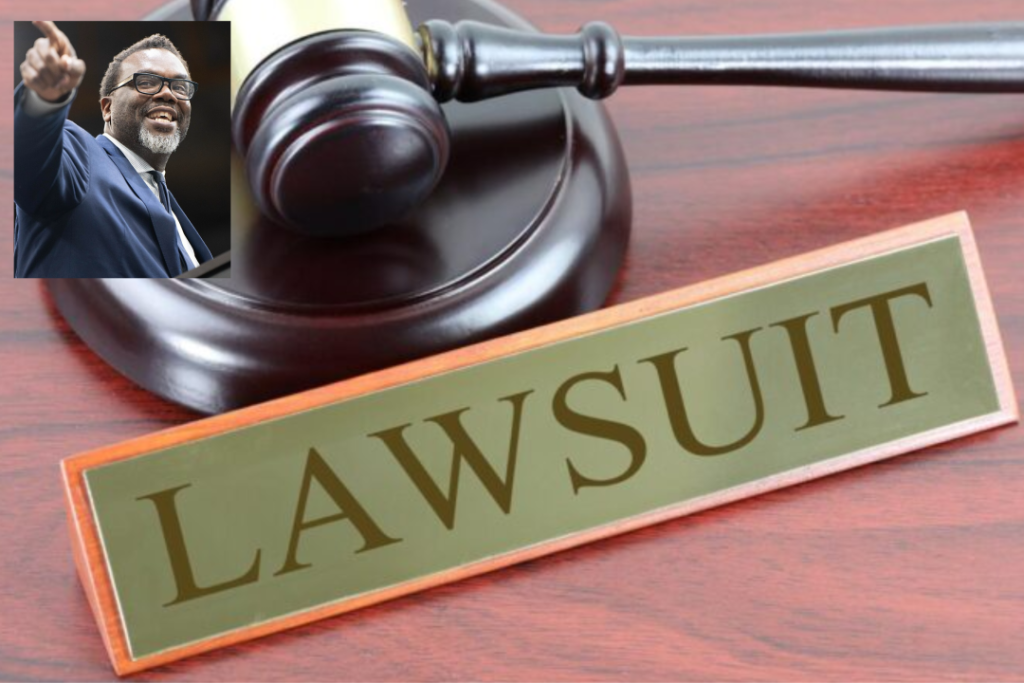Mayor Brandon Johnson’s proposal to establish a tent encampment for up to 1,400 undocumented immigrants in Brighton Park has sparked strong protests from locals, resulting in legal action against the city of Chicago.
Residents of Brighton Park, dissatisfied with the mayor’s plans, have sought a temporary restraining order on the 38th and California migrant tent city, filing a lawsuit against the city in an effort to enforce the order. The legal battle unfolded during a hearing where it was revealed that the tent city lacked construction licenses from the city, prompting locals to demand accountability for the enforcement of zoning and construction regulations.
The controversy deepened as the city made a contentious claim that the soil at the proposed tent city location is harmless unless ingested, further intensifying dissatisfaction among locals and legal observers.
The mayor’s office defended the safety of the site, stating, “According to the report, soil with mercury levels was identified at one location and was removed and properly disposed of offsite at a landfill. With the limited soil removal and placement and maintenance of the barrier, the site is safe for temporary residential use.”
Acknowledging the legal challenge, the mayor’s office emphasized the steps taken to address environmental concerns. The tent city project, estimated to cost $29 million, involves a contract with Aegis Defense Services under the branch name GardaWorld Federal Services.
However, state authorities had already halted construction on Mayor Johnson’s tent city due to environmental concerns. Hazardous substances were discovered in the soil at the construction site, leading the Illinois Environmental Protection Agency (IEPA) to temporarily pause construction, as confirmed by Governor JB Pritzker’s spokesperson, Jordan Abudayyeh.
The mayor’s office responded, stating, “There is no construction or remediation scheduled at this time,” while also acknowledging environmental concerns and the suspension of building activities. The city committed to sharing the results of subsequent cleanup assessments when available.
Despite the mayor’s assurances, some state officials expressed doubt, emphasizing the need for a comprehensive evaluation by the IEPA. The ongoing legal dispute and environmental concerns surrounding the tent city project raise questions about transparency, regulatory compliance, and the potential impact on the local community.
Attorney Frank Avila, leading the lawsuit against the city, criticized the administration, stating, “The city has been dishonest, liars, untruthful, not transparent.” He pledged to hold the city accountable in court for alleged dishonesty and lack of transparency, highlighting the complex issues surrounding the controversial tent city project.


